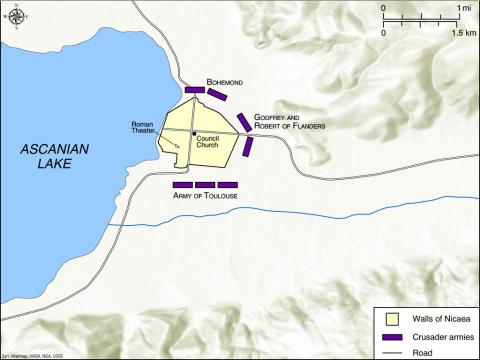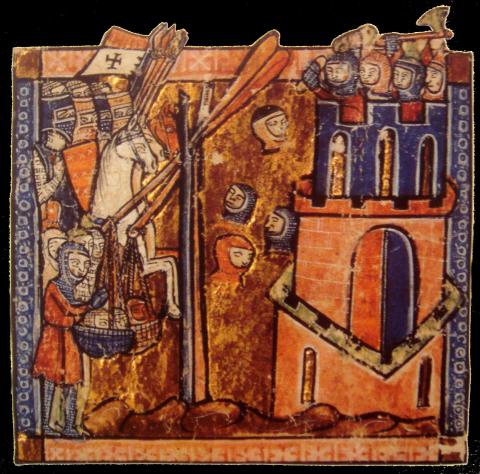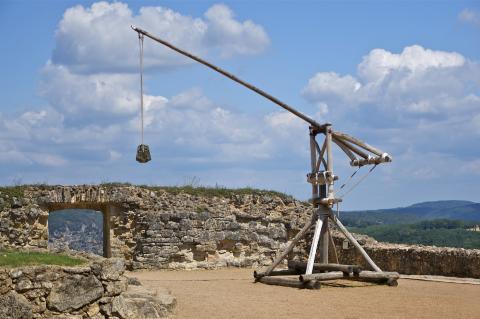The Siege of Nicaea
[2.8.2] Hic itaque invēnit contrā nōs venientēs Turcōs. Quī, undique signō crucis armātus, vehementer irruit super illōs atque superāvit. Dedēruntque fugam, et fuit mortua maxima pars illōrum. Quī rūrsus vēnērunt, auxiliō aliōrum gaudentēs et exultantēs ad certum bellum, trahentēs sēcum fūnēs, quibus nōs ligātōs dūcerent Corosānum. Venientēs autem laetantēs, coepērunt ex cacūmine montis paulātim dēscendere. Quotquot dēscendērunt, illīc, caesīs capitibus ā manibus nostrōrum, remānsērunt. Prōiiciēbant autem nostrī capita occīsōrum fundā in urbem, ut inde Turcī magis terrērentur.
[2.8.3] Dēnique comes sānctī Egidīī et epīscopus Podiēnsis cōnsiliātī sunt in ūnum quāliter facerent subfōdī quandam turrim, quae erat ante tentōria eōrum. Ōrdinātī sunt hominēs quī hanc suffodiant, et arbalistae et sagittāriī quī eōs undique dēfendant. Fōdērunt namque illam usque ad rādīcēs mūrī, summīsēruntque postēs et ligna, ac deinde mīsērunt ignem. Sērō autem factō, cecidit turris iam in nocte, sed quia nox erat, nōn potuērunt proeliārī cum illīs. Nocte vērō illa surrēxērunt festīnanter Turcī, et restaurāvērunt mūrum tam fortiter, ut, veniente diē, nēmō posset eōs laedere ex illā parte.
notes
vocabulary
2.8.2
fūnis –is m.: rope, cable
cacūmen –inis, n.: peak
quotquot: however many
funda –ae, f.: sling (CL); catapult (ML)
inde: in consequence of that, therefore (OLD 10)
2.8.3
quāliter: How? (OLD 1), here introducing an indirect question.
suffodiō (subfodiō) suffodere suffodī suffosum: to dig under, tunnel under, undermine (OLD 1).
turris –is, f.: tower (for the declension see AG § 67.)
ordinō (1): to draw up on formation, organize (as military force; OLD 2)
arbalista –ae, m.: arbalist; crossbow man
surgō surgere surrēxī surrēctum: to rise, get up



